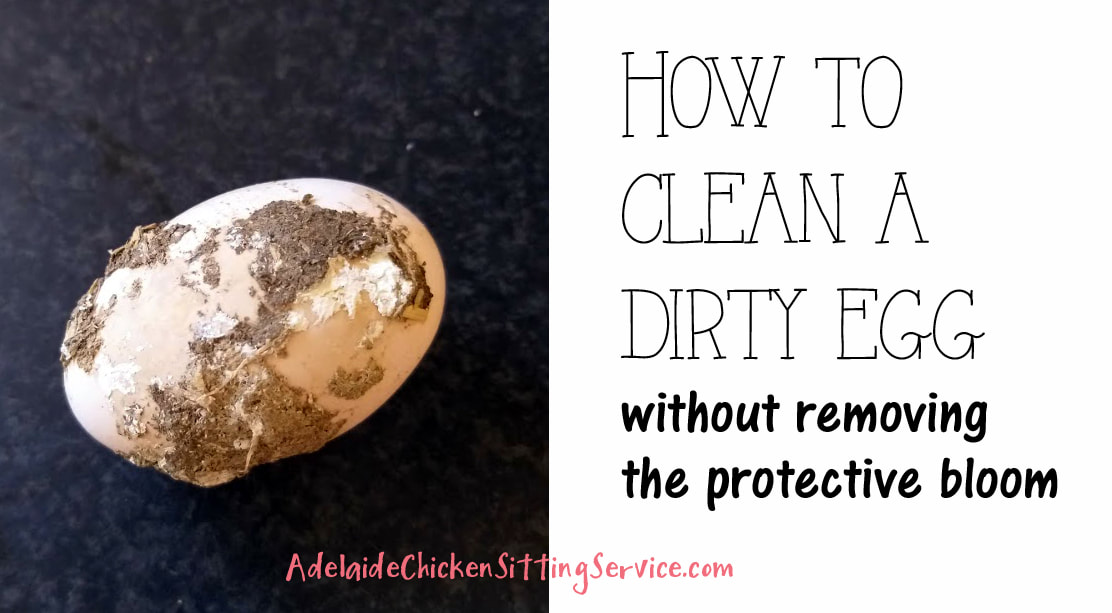How to clean a dirty egg without removing the protective bloom.
Whether you intent the (1) egg for eating or (2) a fertilized egg for hatching, the egg should never be stored dirty.
Bacteria in the poop is the reason why an egg may need to be cleaned. Even on cracking an egg into the fry pan can cause the dried on poop to fall into the pan as well.
Rest assured that not every egg requires cleaning, only the dirtiest of ones. (PHEW!)
Protective Bloom
Every egg has a unique layer around the shell to help prevent bacteria from getting inside the egg, however, this barrier can be compromised if cleaning is too vigorous.
To avoid striping the bloom:
- Do not submerge the egg unless it is necessary for testing for freshness.
- Do not try to rub the stuck on dirt harshly.
- Do not rub ALL of the egg, only the side that needs to be cleaned.
- Do not use any cleaning fluid: use water and a damp cloth only.
Incubator Hatching
Addressing the issue of dirty egg shells in very important if you are hatching eggs in an incubator.
- Use only the cleanest of eggs that are fault free in the shell.
- Cleaning these eggs may in fact lead to that egg failing to hatch or spreading bacteria throughout the incubator if insufficiently dried and allowed to sit on the bench for a few days before going into the incubator.
- Best practice is to omit dirty eggs in favour of top quality ones.
Easy steps to clean a dirty egg:




 RSS Feed
RSS Feed